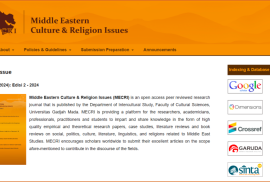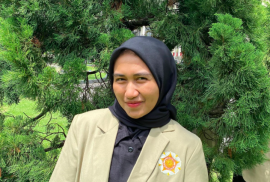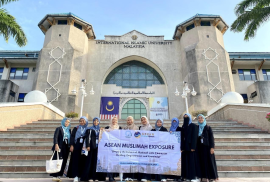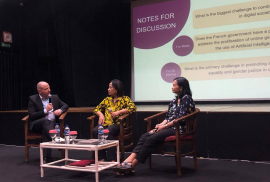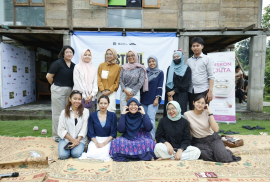Yogyakarta, 26/3/2025 – The Middle Eastern Culture & Religion Issues (MECRI) Journal has reached an important milestone by receiving SINTA 4 accreditation on Friday, March 21, 2025. Established in 2022, the journal is managed by the Middle Eastern Cultural Studies program within the Department of Intercultural Studies at the Faculty of Cultural Sciences, Universitas Gadjah Mada (FIB UGM). MECRI focuses on the study of language, literature, culture, and religion in the Middle East, providing a valuable platform for researchers to explore the complex interactions between culture and religion and their impact on global society. This accreditation reinforces MECRI’s position as a leading reference journal in cross-cultural studies, particularly regarding the Sustainable Development Goals (SDGs), especially SDG 4, which emphasizes quality education.
As an academic platform, MECRI offers researchers, academics, professionals, practitioners, and students a space to share ideas through high-quality empirical and theoretical research articles. Topics covered include social, political, cultural, literary, linguistic, and religious studies related to Middle Eastern Studies. The journal publishes articles regularly in July and December and follows a strict peer-review process conducted by a team of editors and reviewers from leading universities in Indonesia and abroad. MECRI also establishes strategic partnerships with Ittihad Mudarrisin Lugah Arabiyyah (IMLA) Indonesia—a national organization that oversees Arabic language teachers—and the International Center for Arab Studies and Training (ICAST) in Egypt. These collaborations not only ensure the maintenance of academic quality but also enhance the journal’s relevance to the development of global science.
The SINTA 4 accreditation represents a significant opportunity for MECRI to further promote cross-cultural dialogue through research on Middle Eastern language, literature, religion, and culture. The published articles enrich academic understanding and offer practical solutions to various global challenges. With a broad range of topics, MECRI has featured numerous insightful articles on contemporary issues in the Middle East, such as feminism, social inequality, cultural diplomacy, and peace efforts. These studies contribute to the achievement of several other SDGs, including SDG 5 on gender equality, SDG 10 on reducing social inequality, and SDG 16 on peace and justice.
As part of its commitment to the SDGs, MECRI continues to strive to be a research platform that promotes cross-cultural understanding for a more inclusive world. With this achievement, MECRI is poised to advance as a leading force in innovative and globally impactful Middle Eastern studies.
[Public Relations Master of Middle East Faculty of Cultural Sciences UGM, Nafila Azzahra]

